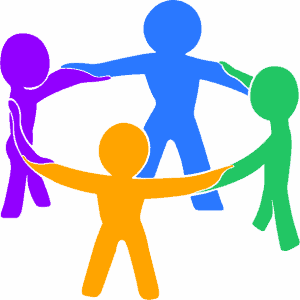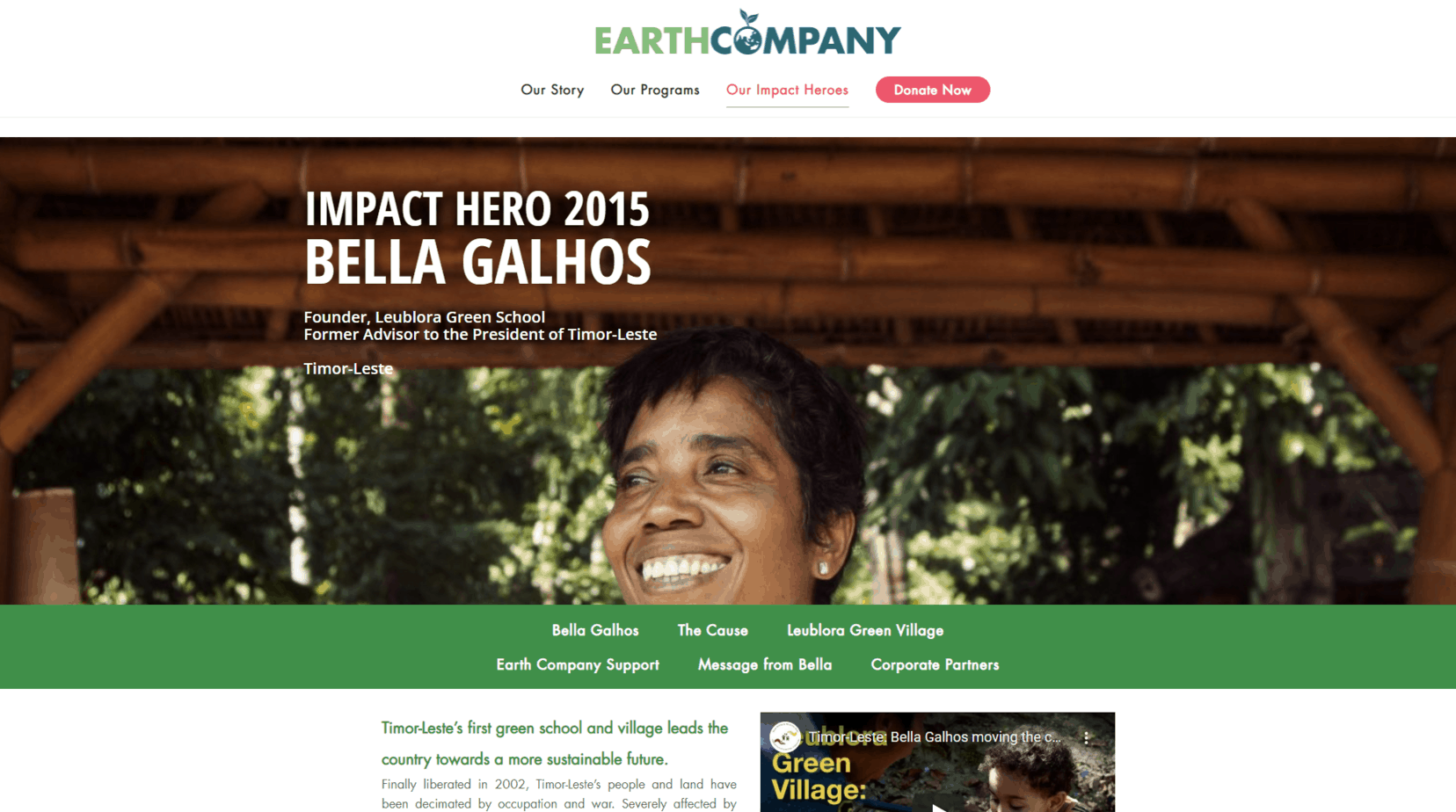Are 36 Models for Digital Social Innovation Really Enough?
NOTE: This post contains a massive list of social innovation organizations. Look around for a model for digital social innovation that’s right for you and get inspired.
Researching models of digital social innovation: An Introduction
Overwhelm is probably the most logical word to describe what we feel when we think about the problems in the world. How can we even start choosing a cause to invest our time and energy?
That’s why I thought to put together an extensive list of social problems and businesses answering those problems, 36 of them. Models demonstrate possibility, so I thought it would be a great place to start generating and stimulating ideas, not only for myself but also for anyone contemplating how to make a dent in the giant scrapyard of problems we inherit from generation to generation.
Everywhere we look, social issues, from personal ones like those micro ones that happen within homes and families to more significant political issues that occur on the city, state, and national scales and even internationally, are happening at once. When contemplating all of this, we might realize the burden of comprehending the scope and scale of so many systemic problems that are persistent and baked into our way of life.
What’s the structure of this guide to 36 methods and models of social innovation?
The links above, when clicked, will deliver you directly to the category or organization you want to explore. I’ve included the quick links above because this is a long article, so a shortcut is helpful. However, I encourage you to read through the article in its entirety. If you do, you will quickly have a much better idea of the scale and scope of digital social innovation around the globe.
This list of these 36 includes existing organizations, nonprofits, and businesses answering problems in specific areas of society, each employing different methods and models to achieve their aims. Enjoy.
But Before Jumping In…
In my view, the first step to reform is identifying the problem; the second step is to generate sustainable models and integrate them into the existing social and economic network. Each unique cultural environment requires different tactics and strategies to enable effective outcomes.
We all have strokes of genius and when that comes, grab hold of it. But if you’re not in a moment of inspiration, the way forward could be to look at existing models already addressing the problems and either emulate them or innovate from that point.
Maybe you already know about a particular cause or are connected to the issues existing in a specific community. If so, great. If not, perhaps choose two or three of these example solutions and spend some time getting to know the organization’s features and exploring what their novel solutions have been.
Massive List of 36 Models for Digital Social Innovation
Enter the master list!
E-Commerce
Small e-commerce may be getting more difficult in 2019, but it remains one of the lowest hanging fruits for delivering a degree of social change. For example, with a Shopify store, you can set up a shop that siphons a portion of proceeds off to your chosen cause in only one day. That’s how easy it is. The companies featured here, however, are doing much more than this. They are doing business differently by building their networks and supply chains to consider the triple bottom line of society, environment, and financial success.
1. Makers Unite
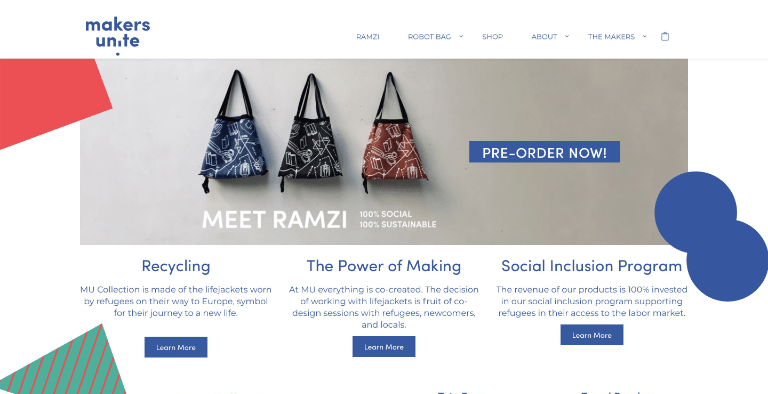
A Hallmark of social Innovation projects aims to integrate multiple facets of the business into a potent cocktail of elements that sums up the brand and delivers the social change they seek.
Makers Unite manages this by upcycling life vests used by immigrants and hiring immigrants to produce products from those life vests, thus extending employment for migrant populations and sending a powerful message about the tragic story of immigration in these times.
2. Burlap and Barrel
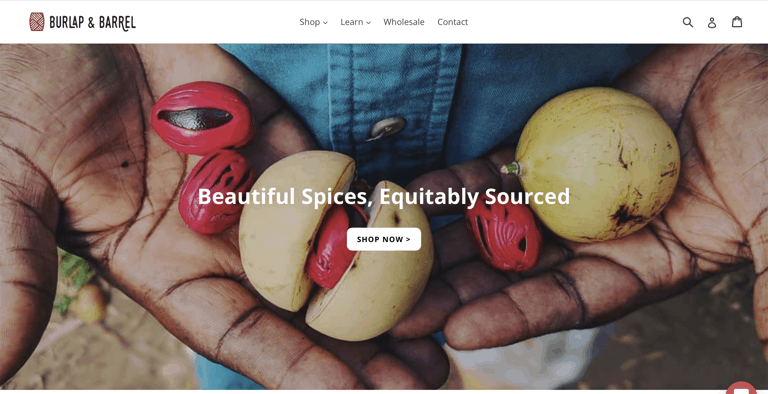
One of the best things about e-commerce as a tool for social impact is that it’s one of the most accessible business structures for regular people to set up with a philanthropic edge.
That doesn’t mean it’s easy. There are massive barriers in the marketplace. For instance, Google doesn’t rank social innovation companies any higher than traditional businesses, but purpose-driven businesses retain fewer profits as a general rule. The climb to success is steeper, requiring do-gooder businesses to use the purpose that drives them as extra energy to be competitive with pure profit motive companies. When a business with a heart succeeds, anybody can go shopping and effect positive change!
Burlap & Barrel sources artisan spices from local small-scale farmers allowing them to sustain farming practices and not bend to the corrupting influences of large-scale farming and the go-betweens that come with it. If you want to impress your friends with some fantastic spices with an incredible backstory, take a minute and shop at Burlap and Barrel.
Some Other Great Social Innovators in E-Commerce
3. Black Mamba
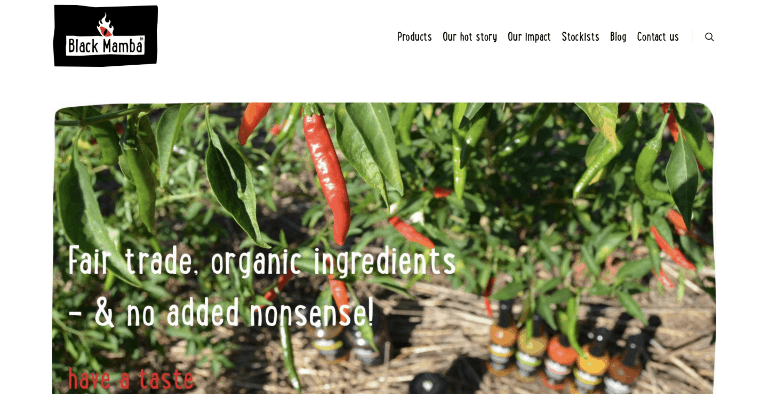
4. Relevee

5. To The Market
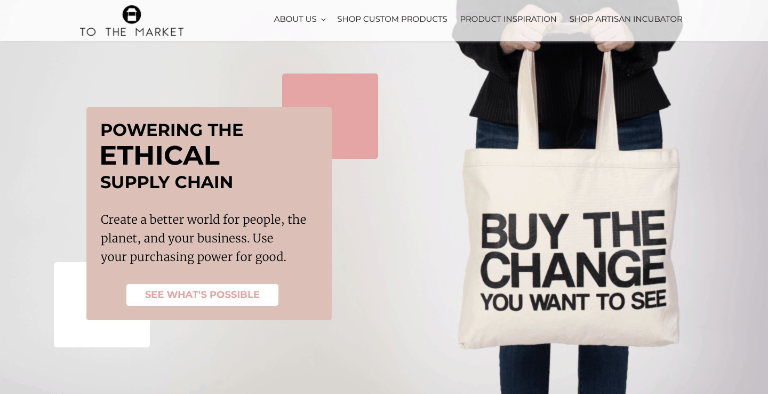
6. Lal10
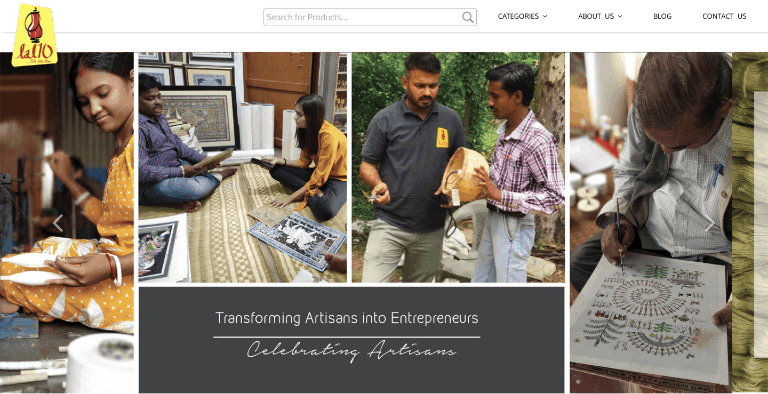
Local Resources
Local resources can be physical, such as raw materials, materials like recycled landfill waste, or products made from local flora. Local resources are also cultural, such as the talent, knowledge, and skills a particular population has expertise. Let’s look at a few examples.
7. Alternative Waste
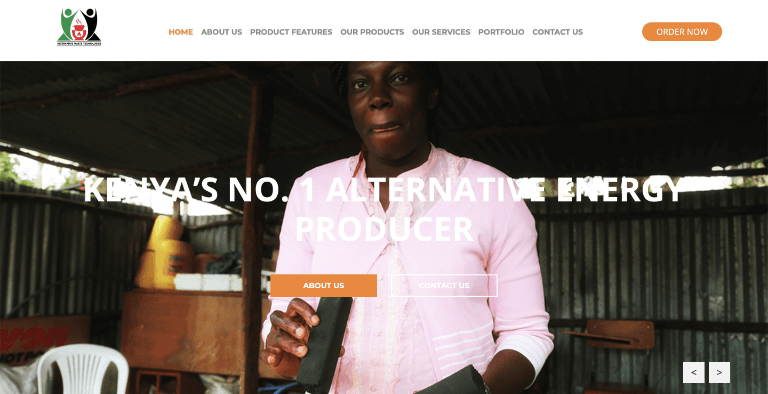
Deforestation is a massive problem in Kenya. A titan of social innovation, Wangari Maathai, the visionary founder of the green belt movement in Kenya, was the first to take the problem head-on.
In small villages that lacked electricity, local people used ood as fuel for heating the home and cooking, along with other fuel sources, like animal dung and even trash. But as populations grew, forested areas began to dwindle from overuse.
Alternative Waste is continuing the tradition of biofuel use sustainably with its manufacture and sale of biofuel briquettes. The briquettes are sourced by gleaning a sustainable amount of decomposed debris from the forest floor and compressing it into very effective fuel briquettes.
8. Shop Soko

In a new Twist on fair trade, Soko is pioneering the ethical fast-fashion space by working with local artisans and utilizing mobile phone technology to create virtual factories to produce heritage craft products for urban women.
I question the long-term impacts of a business model like this would be on the environment. Still, it’s undoubtedly a boon concerning local economic sustainability and the preservation of cultural practices. The company was founded in Nairobi, Kenya, but has set up offices in San Francisco in recent years.
9. Charity Water
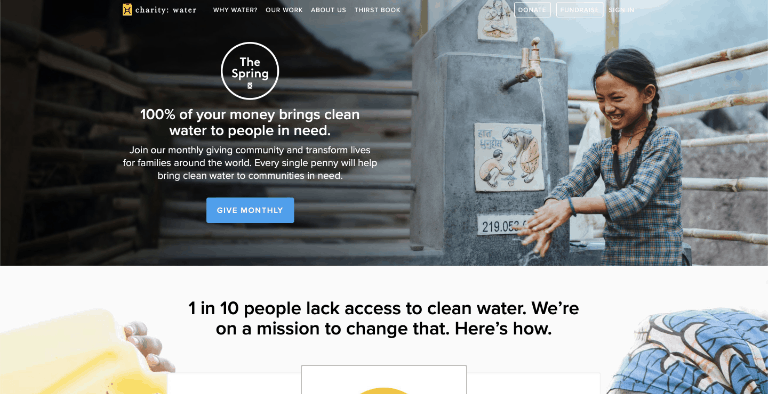
There is no resource more essential than water. Charitywater.org is a fundraising site, but its methodology and focus are on local resources and local empowerment.
They achieve their objectives by working directly with community partners to develop clean drinking water projects in areas of need. Active in 26 countries and with almost 30,000 projects under their belt, charity water is the change they want to see.
Healthcare
If you’re looking for innovations in healthcare delivery, don’t look to the US. Revolutionary new models of healthcare quality AND accessibility can never thrive in such a greedy, regressive country as one that lets the pharmaceutical and insurance industries plunder and pillage the people so freely. But that’s okay because hundreds of other countries are friendly to better healthcare and open to reform-minded leaders. Here are a few examples:
10. doctHers

Yes, America, when it comes to progressive healthcare, you can look up to Pakistan.
In proper social innovation form, Docthers solves a spectrum of social issues. The two prongs of this digital mobile phone-based technology platform are to overcome the socio-cultural barriers that prevent female doctors from practicing, including the freedom to travel to visit patients, and secondly, to increase the accessibility of healthcare for the general population. The third feature of this technology is the reduction of costs that an entirely digitized healthcare platform can provide.
11. TNH Health
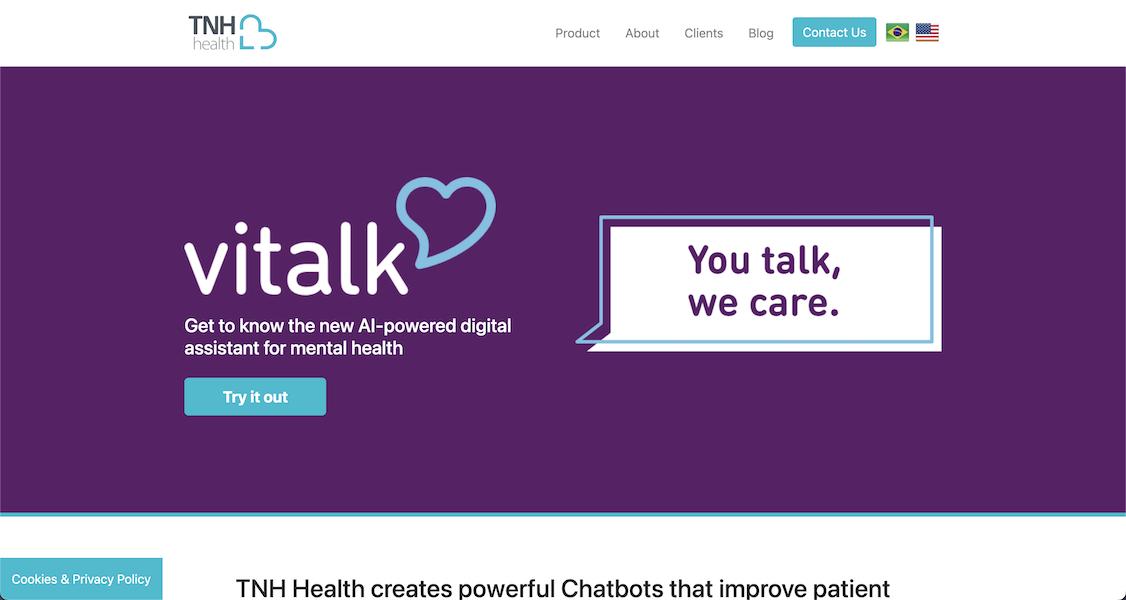
Extending the reach of healthcare to rural populations in hard-to-reach areas is one of the biggest challenges in some countries. Technology is now enabling an array of healthcare-related processes to be automated or performed remotely.
TNH Health is providing Health Care to millions of individuals through automated chatbots that can reach patients through SMS and extend the capacity to diagnose and prescribe.
12. Jamii Africa
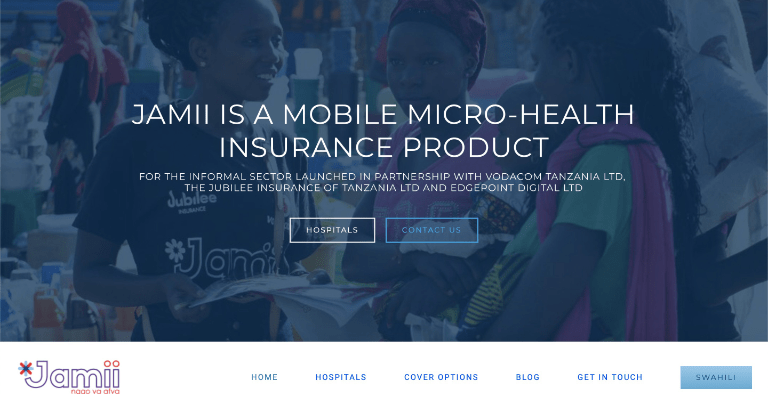
When people think of health insurance, they should feel secure, believing that health insurance is a good thing that gives them access to the care they need.
Jamii Africa delivers on this expectation through micro-healthcare plans and a digital platform that insurance holders can contain the patient’s ID and be used at hospitals throughout Tanzania. Individual programs are as low as $19 annually or 44000 Tanzanian Shillings.
Children
With all the competition around being in the correct zip code to be at the right school to get the advantage in education, it’s easy to understand how access to quality education for children can be a game-changer. Getting kids excited and started on STEM when they’re young can make all the difference. Once again, quality and access are crucial and could help level the playing field in decades to come.
13. Hipocampus.mx
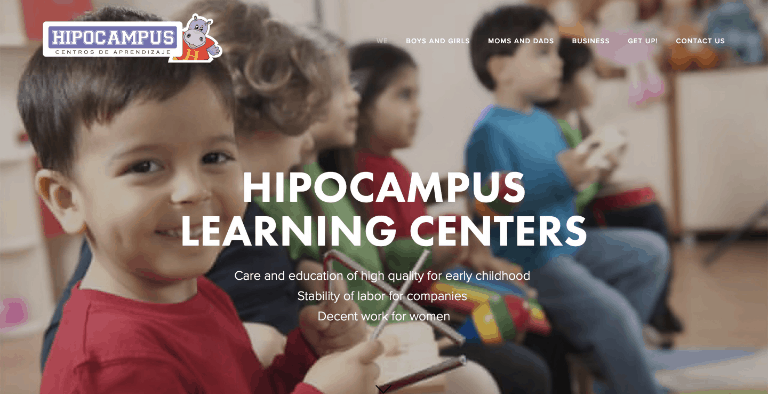
In early childhood education, Hippocampus, an Indian private and affordable school network, enables parents to work with the confidence to know that their children are getting an excellent early childhood education. Hippocampus, through a partnership with Connovo, has successfully expanded to Mexico.
With over “200 centers and 72 franchises in India”, Mexico is hopeful to grow its Hipocampus division to serve children throughout Mexico.
14. 1Bot
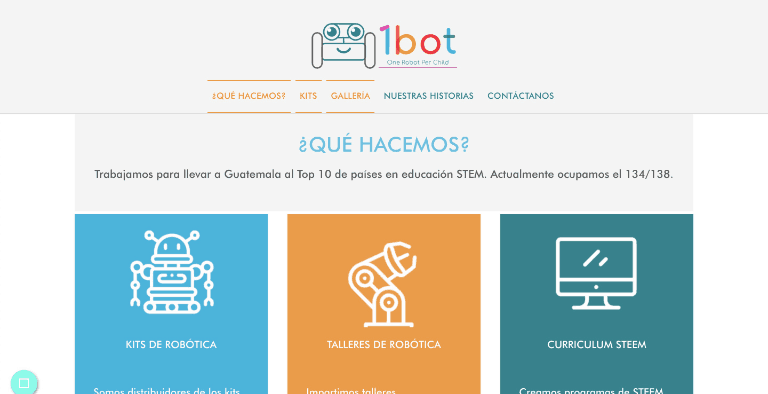
1Bot has a highly ambitious goal to bring Guatemala to the top of the charts in stem education by giving Young Learners the tools to learn Technical skills through robotics. The company is a distributor of very low-cost robotics kits. In addition, they run workshops and create STEM programs for participating schools to use.
Migration
With climate change affecting the movements of human populations and fascism and nationalist/racist hate groups on the rise, people in transition around the globe are in urgent need of infrastructure and services that support the life they find themselves in, wherever they are. Here are a few examples:
15. 1951 Coffee
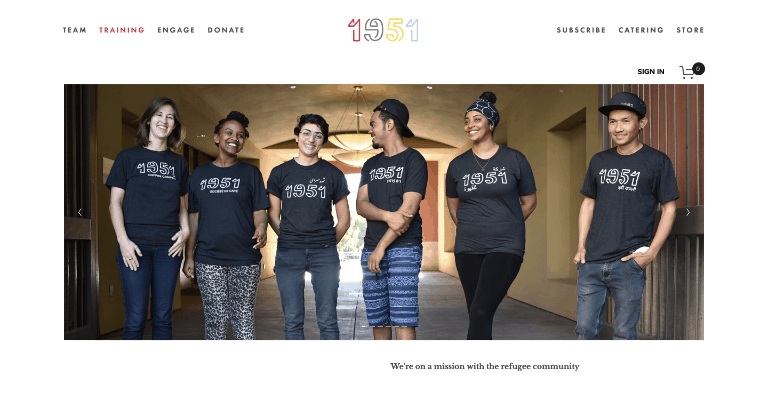
Not all efforts are as great as some of the examples we’ve looked at already. Small organizations can also significantly affect conditions for people in local areas.
Fortunately for those immigrants living in Berkeley, California, 1951 Coffee, a coffee company that actively employs and trains immigrants to help them enter the job force. If you happen to be in Berkeley, CA, head over and get yourself a cup of coffee.
16. Refugees Code
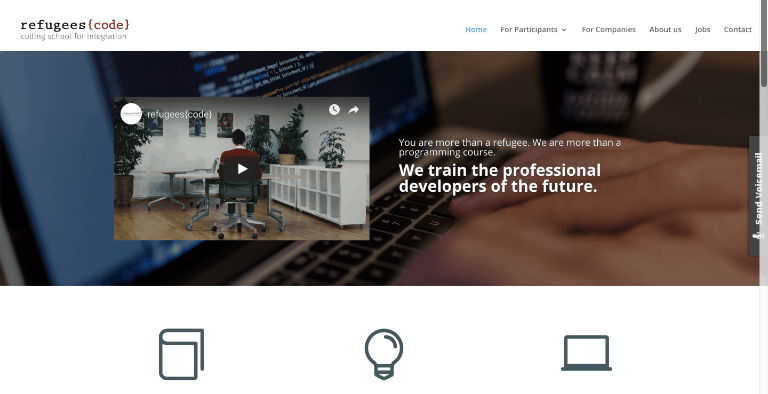
Clearly stated on the mission page of refugees {code} is the following:
“New Austrian Coding School is a programming school for everyone. We offer a nine-month training program to develop coding and software development skills, free of charge. The program is designed for people living in or around Vienna who are currently unemployed and want to work as developers soon.”
Well, I might go ahead and become an immigrant for this one; oh wait, I already am one!
Anyway, Austria is an excellent country with exceptional policies around immigration. These conditions fit like a glove with refugees {code}, a nine-week coding boot camp designed to take unemployed immigrants and turn them into gainfully employed coders and developers in Austria. I’m packing my bags!
Human Trafficking
It’s beyond me to be able to comprehend the horror of being kept against your will and used, bought, and sold as a piece of property. Sadly, 20 to 30 million people know precisely what that is like every year. Models of social innovation about human trafficking tend to be highly specialized, bringing an array of services to bear from intervention to recovery and beyond. E-commerce is an effective vehicle for taking action on almost any social problem related to human rights.
17. Earth Company
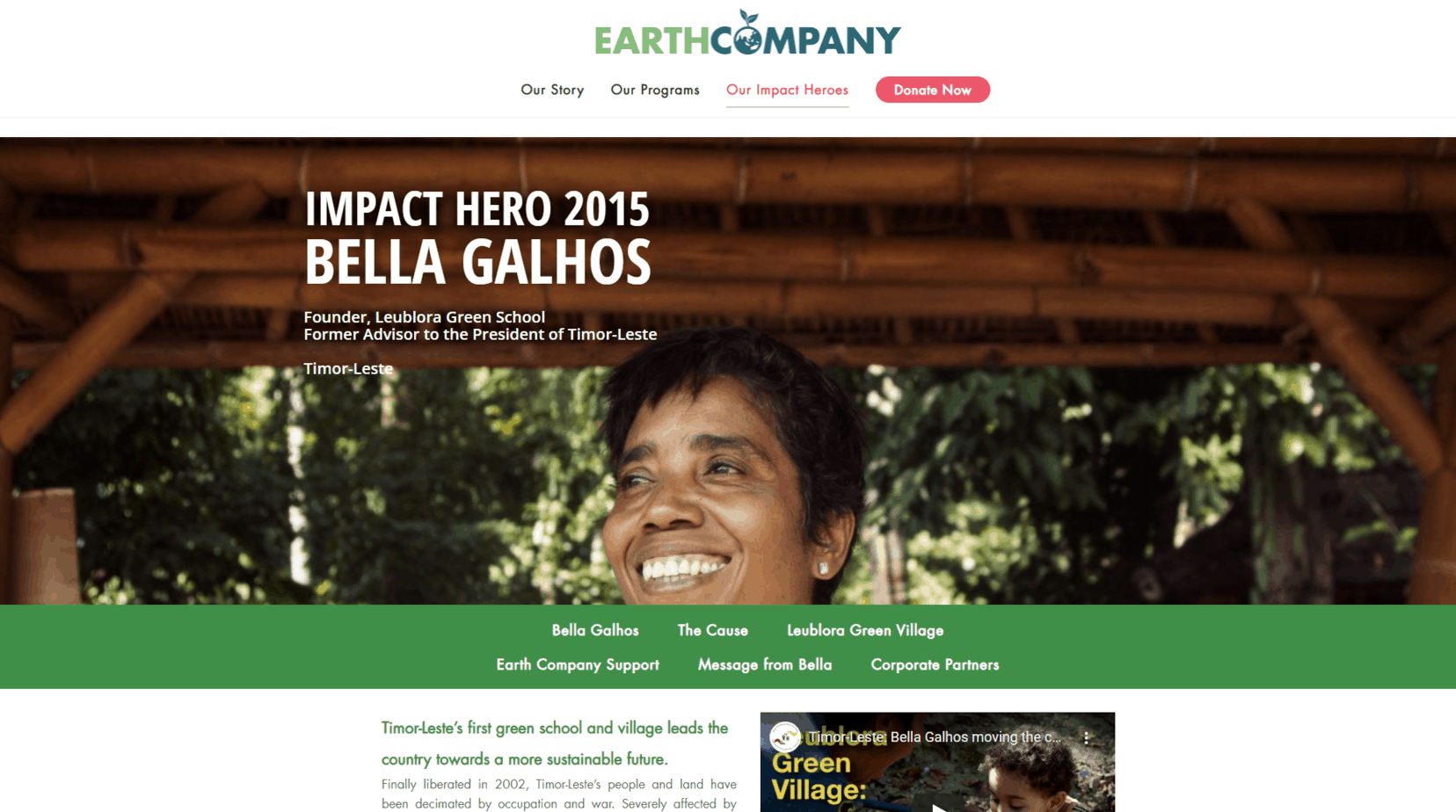
Since 2015, Earth Company has raised vital funds for change-makers in South Asia, like Bella Galhos. After suffering several unspeakable events, including living through brutal civil war and being human trafficked by her father, she is now the first openly lesbian presidential candidate of Timor-Leste.
If that isn’t a powerful story, I don’t know what it is, and Bella is only one of many change-makers who Earth Company has empowered.
This innovative organization goes further, though, with training and education, an eco-resort for hosting such events and promoting and selling local, sustainable crafts. Next time you are in Indonesia, be sure to seek them out!
18. Nomi Network
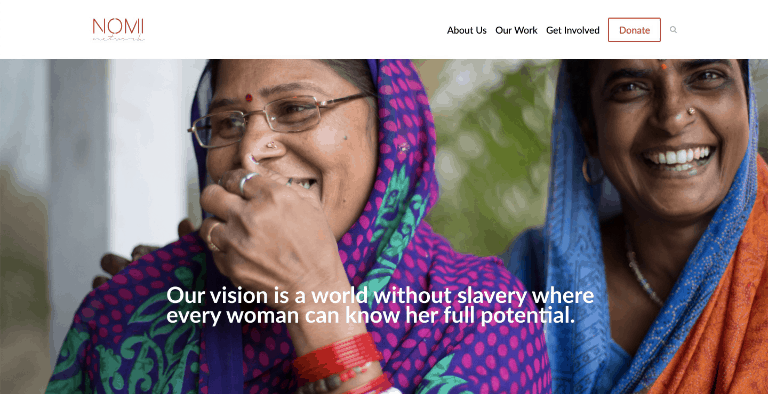
The Nomi Network, based in India and focused on the state of Bihar, is a group that works in intervention and recovery for women who have been human trafficked or who are in danger of being human trafficked. They do this by providing jobs making fashion accessories and other products sold on their shopping website, https://www.buyherbagnotherbody.com/.
Nomi Network accepts donations for their “Sponsor Her” campaign, and they raise funds with e-commerce to carry out their work.
Financial Services
We wouldn’t normally expect to see radical healthcare innovations on US soil. Conversely, we would expect to see some activity on the financial front. Thankfully, our fellow soldiers of peace, truth, and social and environmental equity have infiltrated the ranks of the pure profit crowd. Here’s a look at social innovation on the financial front.
19. Esusu
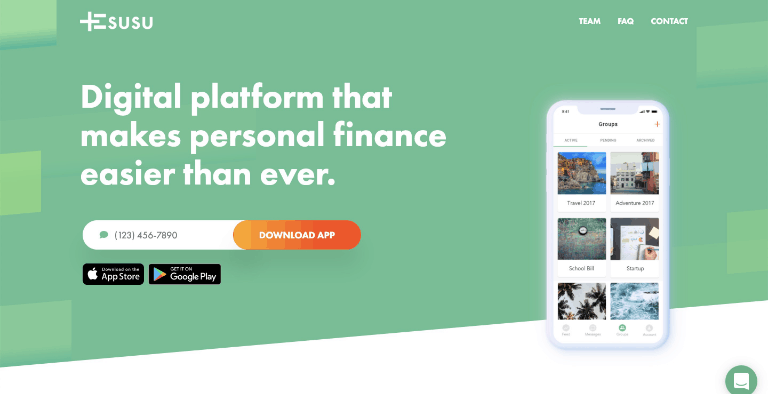
If there’s one thing to learn when going through this list of methods and models of social innovation, social enterprises are multi-pronged in their design and effect.
Esusu manages this by making financial health a social event. With a group, users use Esusu like a savings account but with the added responsibility of doing it collectively. In addition, users can increase their credit score because Esusu acts as another form of credit. You can create whatever accountability groups you want within Esusu, like a “get out of student debt” group.
Very interesting. I’m looking forward to giving it a go as a vacation savings app for my family.
A Note on the Importance of Monetisation
Big dreams are great, but getting the money you need to lift a do-gooder project off the ground is something you should consider carefully. For those of you who want to have maximum control over the vision and outcomes of your project, you may want to consider self-funding but BEWARE. Trying to hustle the money up yourself can send you off on the wrong trail and leave your actual mission sitting in the dust.
After several years of experience doing the former, I recommend speaking to angel investors IF 1) you’ve got something an MVP that’s formed enough to show. 2) If you have built your pitch deck 3) If you have potential team members in mind, you can showcase 4) If your business has the potential to provide investors a positive ROI (at least 5X to 10X their investment is ideal). If you meet those criteria, take a look at the social impact resources like SocialInnovationAcademy.eu .
Accelerators
Wicked problems are problems that are systemic and very difficult to solve. In addition, according to Wikipedia, “A problem whose solution requires a great number of people to change their mindsets and behavior is likely to be a wicked problem.” Social and environmental justice are highly complex local and global problems, which means that by definition, they are themselves in the realm of wicked problems. People need to change their minds to correct the cultural corrosion that leads to poverty or environmental degradation.
Starting a business is hard enough. It’s even more challenging when you add social innovation to the mix. Social innovation accelerators and incubators are in place to help new social entrepreneurs build a solid foundation.
20. Social Innovator Accelerator
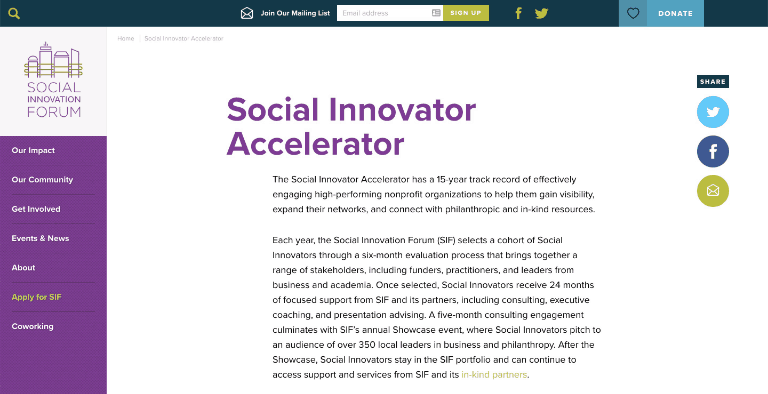
21. Benisi
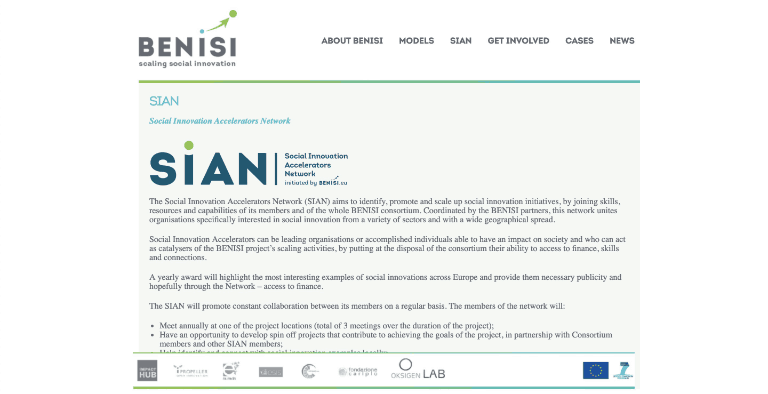
22. ImpactTech Japan
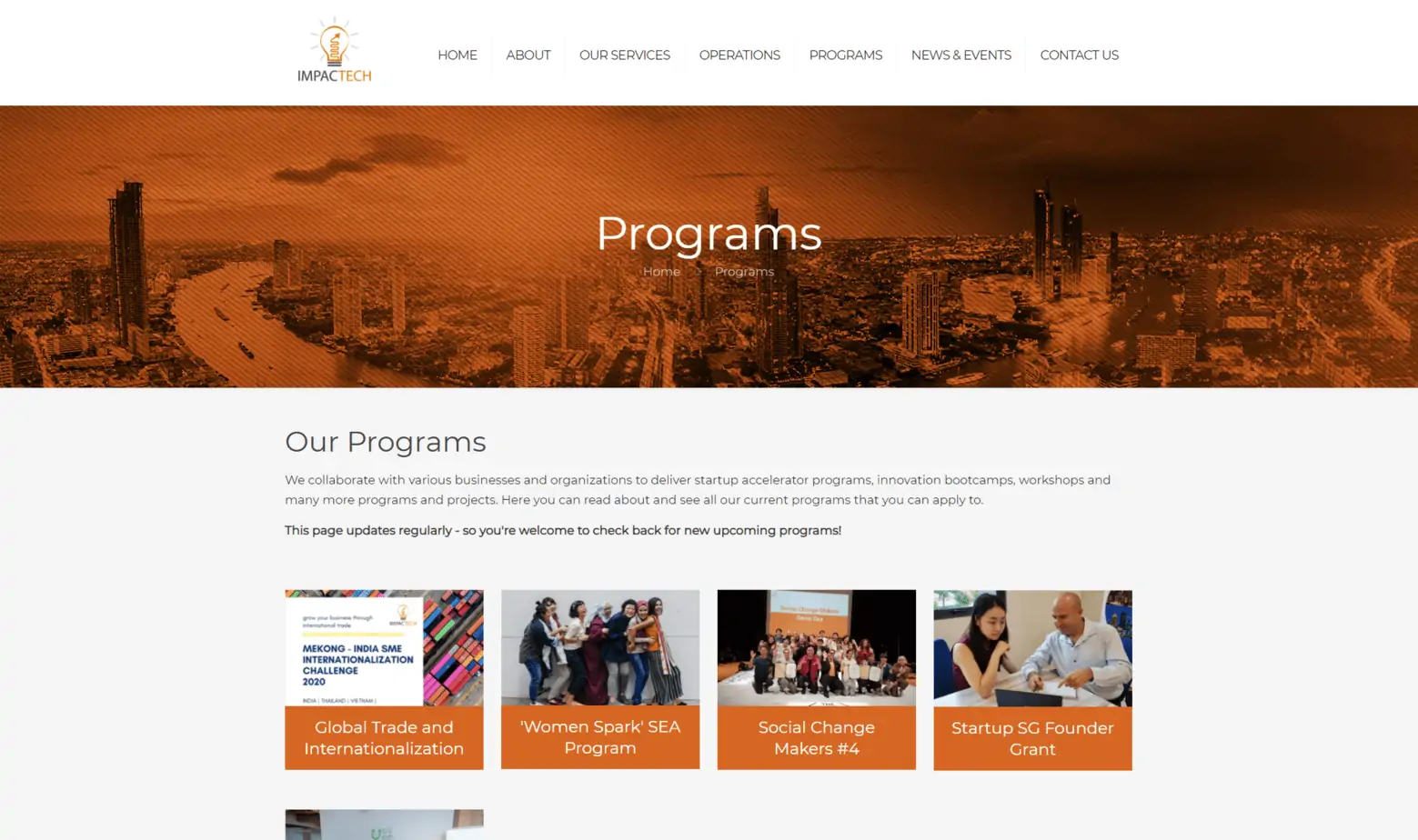
ImpacTech works with Nippon Foundation in Japan to provide an ideal environment for early-stage social impact startups to bloom. Support4Good is one-off 11 startups selected out of more than 70 applicants for Cohort #4, and we are thrilled to be a part of it.
Having the privilege of being a part of this program twice with two different companies, I can attest to the increased quality this program has acquired over the last year. For social impact projects starting up in Japan, this is an accelerator you don’t want to miss that chance to apply. Check out the full roster of startups in this year’s cohort!
23. Barbera Corporate Law
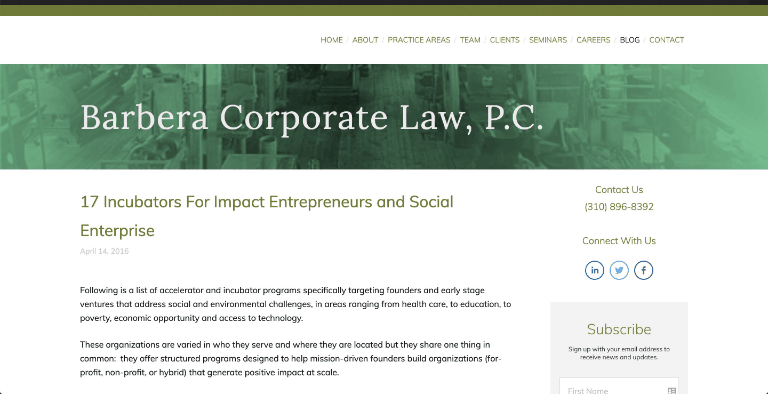
There are probably hundreds of social innovation accelerators worldwide, large and small, well and poorly funded. An essential first step is to make contact and, if possible, get involved with these organizations and the people connected to them.
Please share your ideas and develop them among these rich and resourceful communities.
Education
When considering UN sustainability goals, or whatever the following branded approach to solving wicked problems is, education is a lynchpin that demonstrates the realities of intersectionality.
Access to equal education and equal resources globally is a goal that has a multiplicative effect on many other SDG goals. Here are just a few social innovation initiatives taking this challenge on.
24. Innovation Village
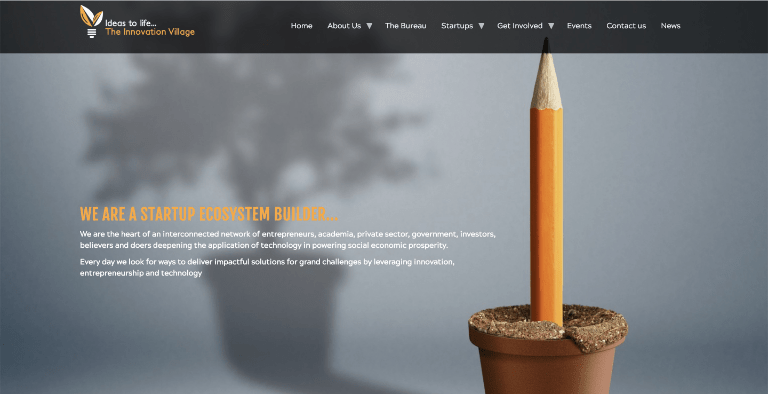
In Uganda, the youth population is exploding. Uganda needs to constantly evolve its infrastructure to absorb a heavy influx of youth, some say up to 25000 new workers every day, into the workforce as positive contributors to Uganda’s sustainability and economy.
Innovation Village can give young innovators a chance to develop their solutions to social problems they encounter in their lives in a positive, nurturing atmosphere, where other social innovator mentors are on hand to offer their experience and insight.ir experience and insight.
Energy
Lack of access to electricity is a humanitarian issue that social enterprises focused on energy innovation are trying to solve. Energy insecurity is chronic in some locations. In others, disasters like Tepco and the Fukushima Daiichi nuclear plant meltdown in 2011, the recent underwater volcanic eruption in Tonga, or the Kentucky tornado that destroyed 15000 homes in December 2021 underscores the need for electricity contingency plans.
Developed countries and states like California are moving toward full integration of decentralized power that is in large part renewable energy based. In developing nations, renewable energy is an apparent and sustainable supplemental solution.
25. Box Power
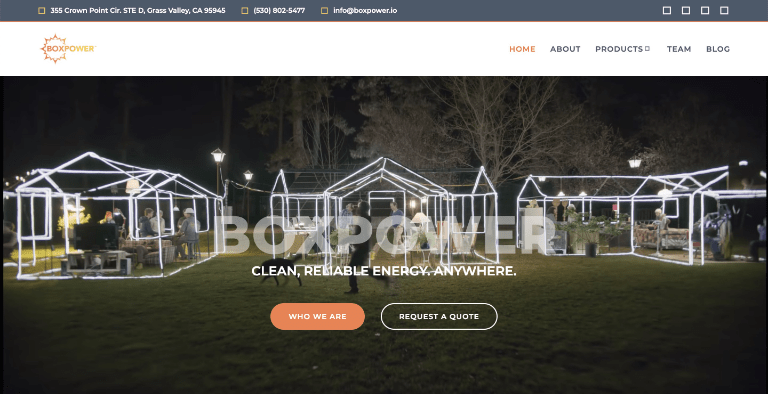
Box Power is an innovative startup that works in areas where regular access to electricity is insufficient. They offer portable, modular intelligent solutions that have been deployed to such diverse locations as Peru, Polynesia, and the Navajo Nation. Their solutions are equally as helpful in both political and natural disasters.
Farming
Nature shrinks as capital grows. The growth of the market cannot solve the very crisis it creates.
To reform farming practices to the point that all externalities are considered is probably a long way off. While industrial farming has solved particular immediate needs, it has done so with a narrow focus, often setting new problems into motion.
Here’s a look at two farming, social Innovation organizations that keep it small and local in the interests of striking a better balance between farming practices and their integration with the rest of life. These organizations exemplify circular economies in motion.
26. KadAfrica
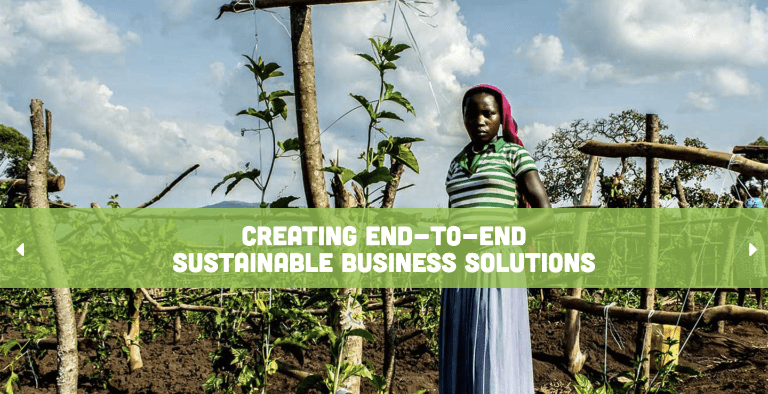
It is well-established by the record of bias among microfinancing organizations. Maybe I know, due to common leftist knowledge, that women are more reliable when given microloans than men, or at least that’s what statistically holds.
So it comes as no surprise that many social innovation platforms focus on women’s empowerment, and KadAfrica is doing this with the cultivation and sale of passion fruit.
When women in areas traditionally dominated by men begin to own their labor and the skills required to earn financial freedom, they also gain power and influence and have the opportunity to become a stabilizing force in their communities.
27. Grassland Africa
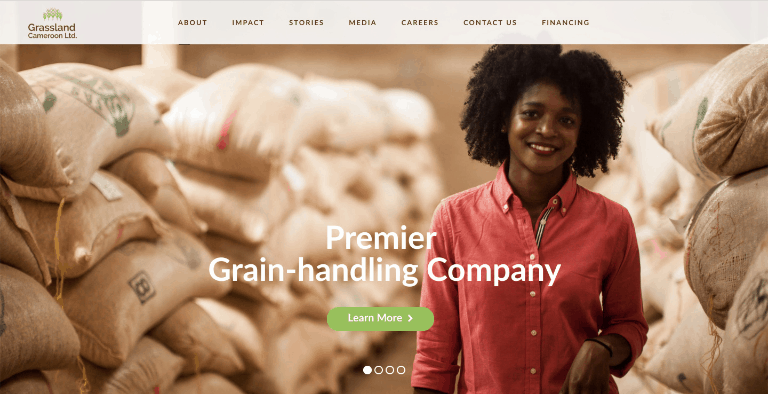
Grassland Cameroon is a regional grain handling company whose focus is to maximize the efficiency of grain stores management and minimize waste. It’s an excellent area to enter into the farming sector with one simple specialized skill that makes a big difference.
Teens
Oh, I had a hard time as a teen! Being a teenager can be tricky. For kids with instability in their lives, either on the domestic level or those experiencing the de-stabilization that comes with systemic racism and classism, like when educational outcomes are predetermined to a degree by zip codes, it can be much more challenging.
We as a society need to recognize what a critical sector of the population teenagers are. What happens to them in their formative years determines the psychological frameworks on which future generations will be built.
28. Skratch
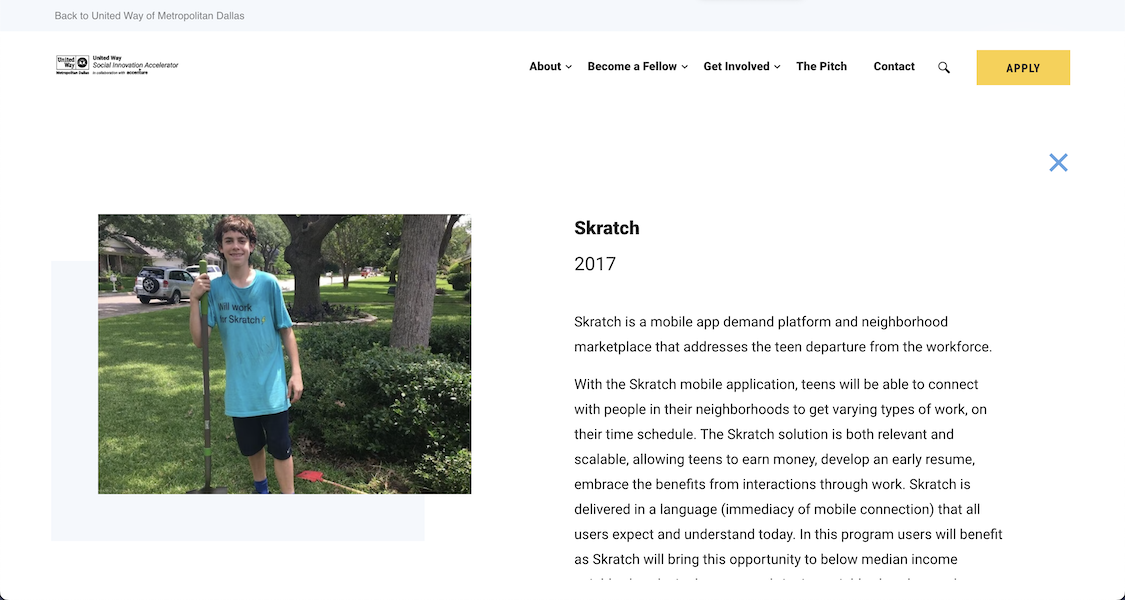
Skratch is a mobile app in its early stages of development, focusing specifically on Dallas, Texas. They’re responding to needs identified in the local community by connecting parents and their teens with opportunities to work in the neighborhoods where they live (teenagers working with younger children is a popular gig).
Say your nine-year-old daughter wants to learn how to master a yoyo trick. There is probably a teenager in the database that can help her with that. It’s an exciting concept and furthers the values of self-determination, being a good role model, and having healthy relationships with other children while strengthening local communities. Nice one!
29. Ask Without Shame
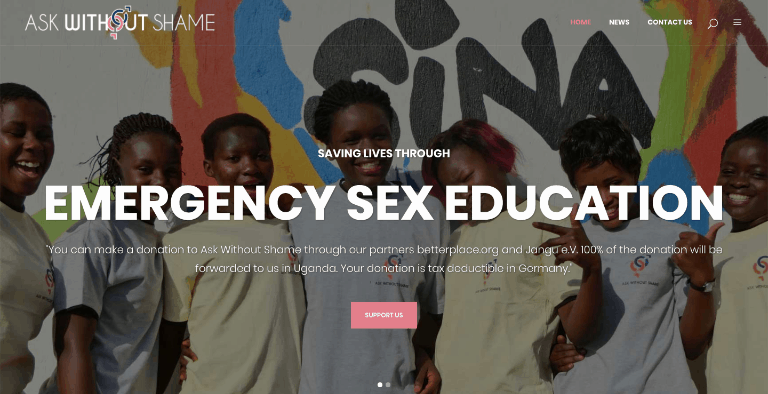
Ask Without Shame is an Android app that young teenage girls in Uganda can use for discreet, private, confidential sex education. It’s also a place to get accurate answers to their questions about sex.
It’s a needed resource for girls to have and helps them make better decisions and refute false claims.
Self-Defense
I want my daughter to be able to perform an armbar on an assailant before I allow her to go to school alone. I joke, but I’m a fan of this category. For myself, I’m a man of peace, but when it comes to my daughter’s safety, I want her to kick ass.
30. She Fighter
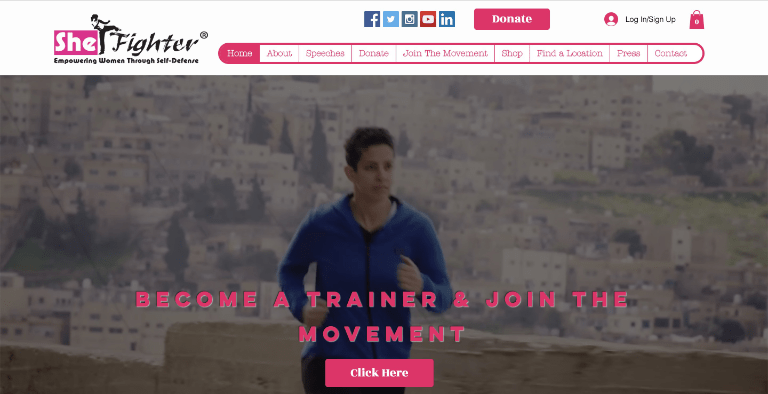
Based in Amman, Jordan, SheFighter Is the only self-defense studio for women in the Middle East. The founder decided to start the project when a friend came to her after being physically abused, visible bruises on her face. In Jordan, much like many other countries throughout the world, men continue to use their powers of physical strength to inflict psychological and physical domination over women.
She Fighter is an answer to that mistaken understanding.
Supply Chain
Interstitial services like the supply chain, especially in local communities, can make those connections that a village perhaps wouldn’t be able to make on its own. Thus, it is an excellent arena for social innovation.
31. To The Market

If you’re wondering, yes, I mentioned this organization at the beginning in the E-Commerce section, so I admit this is a bit of a cheat on the numbers.
To The Market is an E-commerce outfit producing tote bags and other items. They’ve built their supply chain, made up of more than 100 curated suppliers based on an array of conditions but governed by ethical business practices and equitable compensation.
32. Vakava Africa
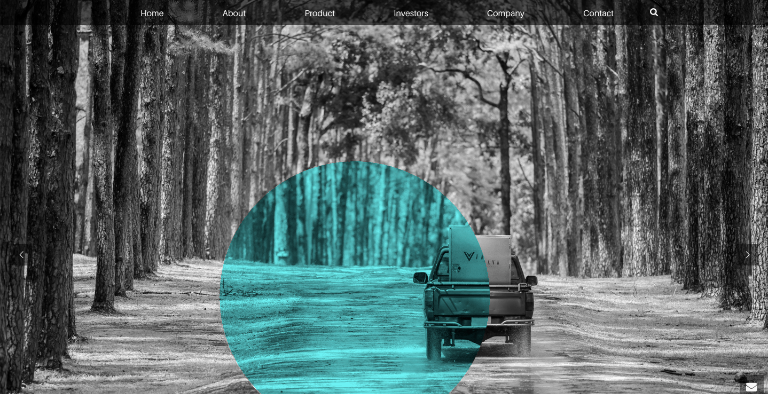
Something that can pose an extreme challenge in hard-to-access areas of the world is the difficulty in transporting medicines and foods that need to be kept cold on their way to reaching remote locations.
Vakava Africa, like boxpower.io, has come up with a solution that makes an impossible situation possible. Their cold storage units come in various sizes and require no external power sources, making them virtually fail-proof. This technology is a game-changer for the shipment of groceries, meats, and medicines.
33. Indigenous People
The disenfranchisement and malignment of indigenous people is a systemic step-by-step process of cultural genocide. Nation-states and other encroaching offenders systematically break down indigenous cultures, livelihoods, and migration patterns. The aim is to force them to submit to the mainstream economic activities of the countries they have been swallowed by. These settlers who build foreign structures around indigenous groups and occupy and destroy ceremonial grounds are alien to indigenous populations.
Outsiders interested in offering help must work with the leadership of indigenous populations, as ultimately, the recipients of the results of any effort must accept and approve the outcomes. Given that nonprofit organizations or other organized groups are foreign and external to indigenous peoples, it stands to reason that there are relatively fewer models of digital social innovation among indigenous peoples.
Partnering with marginalized communities to empower them can help them to form their solutions. Ideas for social innovation should arise from within the community rather than descending from some outside perspective. Any case of the latter, even if designed in the interests of indigenous peoples, would be another extension of colonialism and occupation.
Of course, the disappearance of long-standing native cultures is one of humanity’s worst forms of tragedy, just as animal extinction is a tragedy concerning global ecosystems and life on Earth as a whole. But in the case of indigenous peoples, it is in no one’s jurisdiction but members of indigenous communities themselves to decide what’s best for native people. Thousands upon thousands of us stand by, waiting to lend our support whenever there is a chance to assist or advocate on behalf of an indigenous community (and what happened at Standing Rock in North Dakota).
Fair Trade
Bringing together a variety of ethical business practices: from grassroots supply chain design to paying a fair price for local goods, led to a new industry with explosive growth potential now known the world over as “Fair Trade.”
Humans love and are fascinated by culture, and we love to learn. Native crafts and arts provide people with life-enriching cultural experiences in products sourced worldwide.
Cottage industries are at the core of Fair Trade businesses. Likewise, a respectful compensation for goods that allows local artisans and communities to preserve their way of life is a positive outcome of this trade. When native groups can gain some parity in the global economy, they also gain agency over their destiny and take a more active road to create their futures.
Virtually everyone knows something about it when Starbucks talks about their Fair Trade coffee beans. But major profit-driven players like Starbucks may use “fair trade” programs as a trojan horse to help them break into new sub-sectors of the market who generally oppose growth-driven corporations like Starbucks. Therefore it is essential to do your research when looking into which fair trade companies to shop. Check out this article to find a few excellent Fair Trade companies.
34. Gifts With Humanity

Gifts With Humanity is a Global Crafts brand founded by the same two visionaries that, after volunteering abroad with the VSO and the Peace Corps, decided to start a Fair Trade company back in 2002.
The lovely selections you’ll find at Gift With Humanity are a curated collection that knocks the socks off those Aliexpress imposters. Leave all that behind and find only the best fair trade local artisans here.
35. Counter Culture Coffee
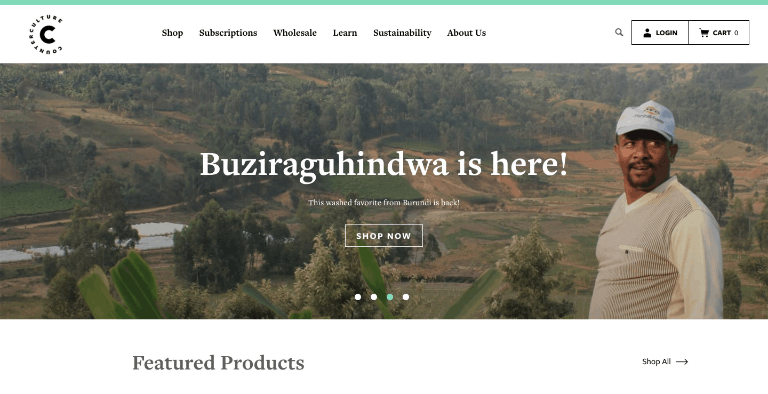
Founded in 1995 in Durham, NC, Counter Culture Coffee is a “boutique” coffee roaster that sources all its beans from small farms, paying anywhere from $1.3o to $25/lb – see their Wikipedia page for additional details.
The model that sets them apart is all about sourcing. Counter culture only works with artisan coffee farms with environmental practices. To help ensure and magnify their practices are adopted more widely, they established their certification, the Counter Culture Direct Trade Certification, in 2009.
In addition to all this goodness, they offer their local communities a wide variety of educational opportunities, all things coffee. In doing so, they prepare the next generation of baristas and roasters to inherit fair trade values and to hit the ground running with a clear and practical understanding of how fair trade works.
Impact Investing
According to Wikipedia (I still believe in it), impact investing refers to investments “made into companies, organizations, and funds to generate a measurable, beneficial social or environmental impact alongside a financial return.”
So we’re talking investors here. There is a range of services focused specifically on impact investing, many with novel and educational approaches to brokering relationships between social innovators and their investors.
36. Impact Experience
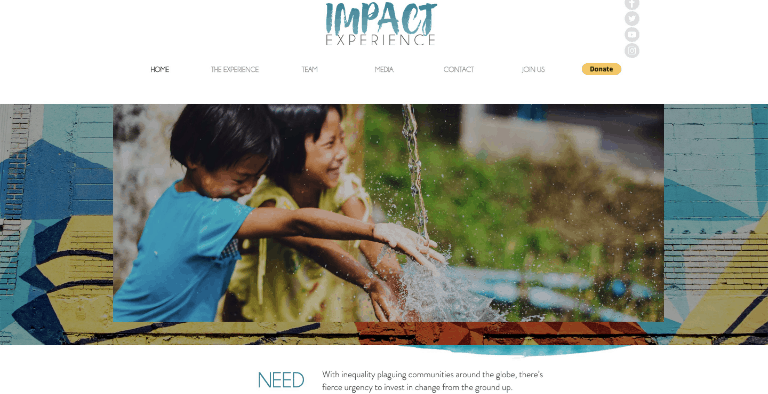
One really interesting service like this is the impact experience. Their mission statement:
Impact Experience builds bridges and deep relationships between impact investors, foundations, entrepreneurs, artists, and local leaders to co-create solutions with marginalized communities.
A Note About Misinformation
Note: If you are a small social innovation group seeking funding, there is a lot to consider, including research and publications that work against your cause. To understand the concerns of social impact investors, check out this Vox article which gives an overview. The report is almost devoid of facts, but it speaks to the real fears of investors that pose a challenge when trying to raise capital.

